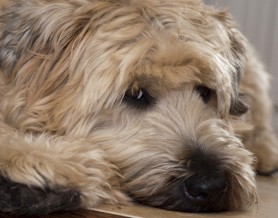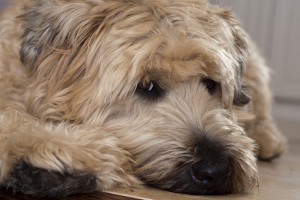Older Dogs

 Just as a person ages, so does your dog. As your dog ages, his body may not work as efficiently as it once did. By learning about your older dog’s needs, you can help him or her enjoy good health throughout their senior years.
Just as a person ages, so does your dog. As your dog ages, his body may not work as efficiently as it once did. By learning about your older dog’s needs, you can help him or her enjoy good health throughout their senior years.
SIGNS OF AN OLDER DOG
![]() Graying hair
Graying hair
![]() Fatty bumps
Fatty bumps
![]() Bad teeth/bad breath
Bad teeth/bad breath
![]() Decreased activity
Decreased activity
![]() Eyes that appear cloudy or whitish
Eyes that appear cloudy or whitish
![]() Personality changes
Personality changes
![]() Hearing loss
Hearing loss
CAUSES FOR CONCERN
![]() Gradual weight loss or gain
Gradual weight loss or gain
![]() Increased water consumption
Increased water consumption
![]() Stiff joints
Stiff joints
![]() Change in bowel habits
Change in bowel habits
![]() Frequent urination
Frequent urination
![]() Shortness of breath and/or coughing
Shortness of breath and/or coughing
![]() Foul breath
Foul breath
If you notice any of these signs, please call us to set up an appointment.
WHAT CAN YOU DO?
1. Older pets like routine. Meals, grooming, and exercise should take place at the same time every day. Try to reduce the stress on your pet.
2. Consult with the veterinarian about obtaining a senior diet for your canine. Older dogs usually require a diet lower in calories and possibly a more specialized diet.
3. Exercise! Mild exercise can help keep muscles and joints limber.
4. Regular veterinary visits should be at least once a year. These visits should include a physical exam, and sometimes bloodwork, urine checks, and possibly other tests depending how your senior pet is doing.

